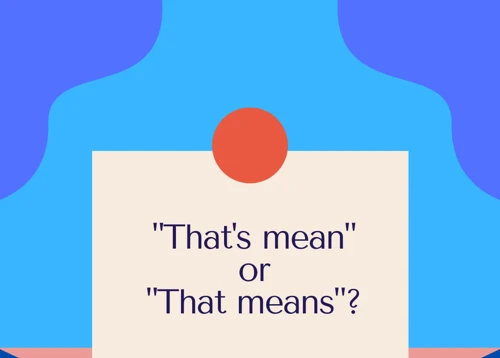Have you ever wondered about the mysterious world of dreams and their meanings? Dreams have fascinated humans for centuries, leaving us with questions and curiosity about their true significance. From Freud’s psychoanalytic theories to modern interpretations, the study of dreams has evolved over time. In this article, we will delve into the depths of dreams, exploring various theories, symbols, emotions, and types to help unravel the enigma behind what our dreams truly mean. Join us on this journey as we navigate the intricacies of the dream world and unlock the secrets hidden within.
Theories and Interpretations
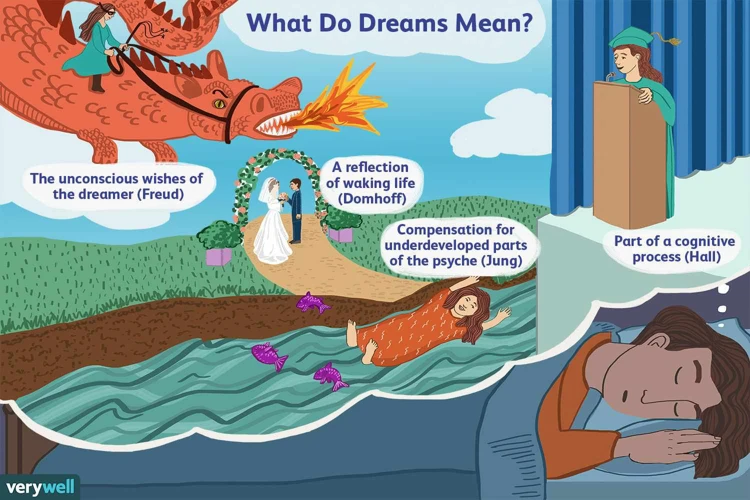
When it comes to understanding the meaning of dreams, several theories and interpretations have emerged throughout history. Sigmund Freud, a prominent figure in the field of psychology, introduced the concept of dream analysis through his Freudian Interpretation. According to Freud, dreams are a reflection of our unconscious desires and repressed memories, offering valuable insights into our innermost thoughts. On the other hand, Carl Jung proposed a different approach known as Jungian Analysis, which emphasizes the symbolic nature of dreams and their connection to the collective unconscious. Modern interpretations of dreams focus on a more individualized approach, taking into account personal experiences and contexts. Whether you believe in the psychological theories of Freud and Jung or prefer a more contemporary perspective, exploring the rich landscape of dream theories can provide a deeper understanding of the fascinating realm of dreams.
Freudian Interpretation
Sigmund Freud’s Freudian Interpretation is a captivating theory that delves deep into the meaning of dreams. According to Freud, dreams serve as a gateway to our unconscious mind, allowing hidden desires, fears, and repressed memories to surface. He believed that dreams were symbolic representations of our innermost thoughts and desires, often disguised and distorted to protect the conscious mind from the overwhelming content. Through the process of free association and dream analysis, Freud aimed to uncover the hidden messages and underlying meanings behind our dreams. For example, a dream about bathing could symbolize a desire for purification and cleansing, both physically and emotionally. Freud’s theory provides a fascinating insight into the complex workings of the human psyche, offering a unique perspective on the enigmatic world of dreams. To learn more about the specific meaning of bathing in a dream, check out our article on “The Meaning of a Dream in which You are Bathing“.
Jungian Analysis
Jungian Analysis is a psychological approach to dream interpretation developed by Carl Jung. According to Jung, dreams are a mirror of the unconscious mind and contain symbols and archetypes that connect to a collective human experience. In Jungian analysis, dreams are seen as a way to access the deeper layers of the psyche and gain insight into the individual’s personal growth and self-discovery. Jung believed that dreams could provide valuable guidance and messages from the unconscious, helping individuals navigate their journey towards individuation and wholeness. Understanding the symbolism in dreams is essential in Jungian analysis, as it allows individuals to explore the hidden meanings and patterns within their dreams. By recognizing and integrating these symbols, individuals can gain a deeper understanding of themselves and their place in the world. If you’re interested in learning more about dream interpretation, you can read our article on “What is the Meaning of Dreams?“.
Modern Explanations
Modern explanations of dream interpretation take into account a more personalized and subjective approach. While Freud and Jung provided valuable insights, contemporary theories emphasize the individual’s unique experiences and personal symbolism. Some theories suggest that dreams serve as a way for the mind to process emotions, memories, and experiences from daily life. They can be seen as a form of problem-solving or a means of emotional release. Others propose that dreams are a way for the subconscious mind to communicate important messages or provide guidance. With the advancement of technology and research, scientists are also exploring the role of brain activity and neural processes in dreaming. By considering the various modern explanations, individuals can gain a better understanding of their dreams and how they relate to their own lives.
Symbols and their Meanings
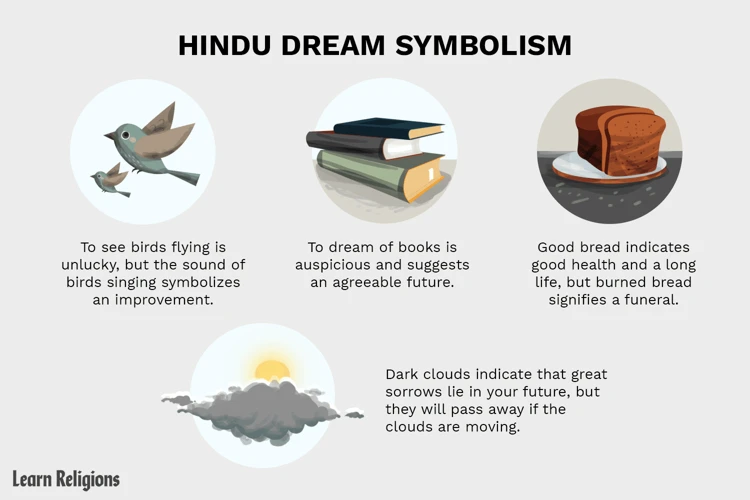
Symbols play a significant role in dreams, often carrying deeper meanings beyond their surface-level representation. Common dream symbols, such as flying or falling, are often associated with feelings of liberation or insecurity. However, the interpretation of symbols may also vary depending on personal experiences and cultural contexts. Personal symbolism in dreams is particularly unique to each individual, as symbols can hold specific significance based on one’s own experiences, memories, and emotions. For example, while a snake may represent danger for some, it could symbolize transformation or healing for others. Exploring the symbolic language of dreams can provide valuable insights into our subconscious mind and help uncover hidden desires, fears, or unresolved issues. If you have ever wondered about the meaning behind certain symbols in your dreams, the next section will delve into some common dream symbols and their interpretations.
Common Dream Symbols
Common dream symbols can vary from person to person, but there are some widely recognized symbols that appear frequently in dreams. For example, dreaming about falling can symbolize a lack of control or instability in one’s life, while dreaming about water often represents emotions and the unconscious mind. Animals can also hold symbolic meaning in dreams, with snakes typically associated with transformation and rebirth, and birds representing freedom and spirituality. Other prevalent symbols include houses, which can symbolize our sense of self or different aspects of our lives, and mirrors, which often reflect self-reflection and self-image. Understanding these common dream symbols can provide valuable insights into the unconscious mind and help us interpret the messages our dreams are trying to convey. (Anchor Text: Meaning of peeing in a dream)
Personal Symbolism
Personal symbolism plays a significant role in understanding the meaning of dreams. While there are common symbols with universal interpretations, such as water representing emotions or a house symbolizing the self, personal symbolism adds a unique layer of meaning to our dreams. These symbols can be objects, people, or even actions that hold specific significance to the individual dreamer. For example, dreaming of peeing could have different interpretations based on one’s personal experiences and beliefs. It could signify a release of emotions, a need for control, or even indicate a sense of vulnerability. Exploring personal symbolism allows us to delve deeper into the subconscious and gain a more nuanced understanding of our dreams and their messages.
Dream Types and their Significance
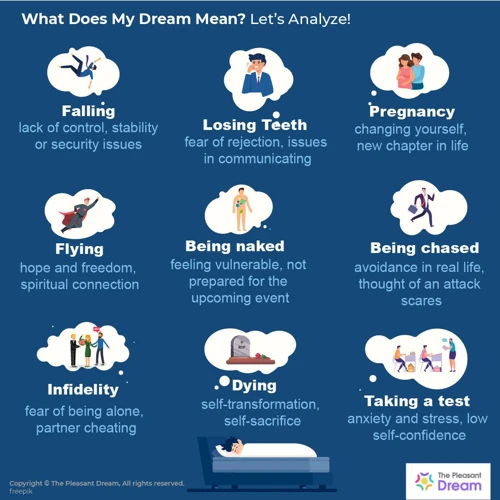
Dreams come in various forms and each type carries its own significance. Nightmares can evoke intense fear and anxiety, often reflecting unresolved issues or past traumas. They serve as a reminder to address inner fears and seek healing. Lucid dreams, on the other hand, provide a unique experience where the dreamer becomes aware that they are dreaming. This heightened state of consciousness allows for greater control and exploration within the dream. Recurring dreams, as the name suggests, are dreams that repeat themselves over time. These dreams often point to unresolved emotions or patterns in our lives that require attention and resolution. Prophetic dreams offer glimpses into the future, providing guidance and insight. However, it’s important to approach them with caution and discernment. By understanding the different types of dreams and their significance, we can gain valuable insights into our subconscious mind and make meaningful connections to our waking lives.
Nightmares
Nightmares are unsettling and vivid dreams that can provoke intense feelings of fear, anxiety, and distress. These dreams often leave us waking up in a state of panic, sweating, and with an increased heart rate. While the exact cause of nightmares is still not fully understood, they are believed to be linked to various factors such as stress, trauma, medications, and certain sleep disorders. Nightmares may also serve as a way for our subconscious mind to process and cope with real-life fears and anxieties. It is important to note that nightmares can have different meanings for each individual, and it’s crucial to explore the specific context and emotions associated with them to gain a deeper understanding. If you’ve ever experienced a nightmare about peeing, for example, it may symbolize hidden emotions or unresolved issues related to personal boundaries and control. Seeking professional help or analyzing the symbolism behind these dreams can provide valuable insights for personal growth and healing.
Lucid Dreams
Lucid dreams are a captivating phenomenon that occur when a person becomes aware that they are dreaming while still in the midst of the dream. In a lucid dream, the dreamer can actively participate and manipulate the dream, bringing a sense of control and awareness to the experience. This unique state of consciousness offers an opportunity for self-exploration, creativity, and even problem-solving. Lucid dreams can range from subtle moments of awareness to vivid and immersive experiences where the dreamer can shape the dream narrative. People who practice lucid dreaming techniques often strive to induce and enhance lucid dreaming experiences. If you’ve ever had a lucid dream, you may have experienced the thrill and awe of realizing that you’re in a world entirely of your own creation. It’s a remarkable and empowering aspect of the dream world that allows us to engage with our subconscious minds in ways that are not typically accessible during waking life.
Recurring Dreams
Recurring dreams are a peculiar phenomenon that occur when a specific dream or dream theme repeats itself over time. These dreams often carry a sense of familiarity, creating a sense of déjà vu. They can be puzzling and leave us wondering about their significance. Recurring dreams can signify unresolved issues, unresolved emotions, or unaddressed fears that need our attention. They may also indicate the need for change or growth in certain areas of our lives. Exploring the symbolism and patterns within recurring dreams can provide valuable insights into our subconscious mind and assist us in addressing underlying issues or making positive changes in our waking lives. So, next time you experience a recurring dream, pay attention to the recurrent themes and emotions and consider the possible messages they may hold. To delve deeper into the meaning of specific dream elements, such as peeing in a dream, check out our article “What Is the Meaning of Peeing in a Dream?”.
Prophetic Dreams
Prophetic dreams, as the name suggests, are dreams that seem to foretell future events or provide insights into aspects of life that are yet to unfold. These dreams are often vivid and memorable, leaving a lasting impression on the dreamer. While there are differing opinions on the legitimacy of prophetic dreams, many individuals throughout history have claimed to have had such experiences and believe in their significance. Some people attribute prophetic dreams to a heightened sense of intuition or a connection with the spiritual realm. Others see them as a manifestation of the subconscious mind processing information and making predictions based on subtle cues. Whether you believe in the prophetic nature of dreams or interpret them as symbolic representations, they certainly add an intriguing layer to the exploration of the meaning of dreams.
Emotions in Dreams
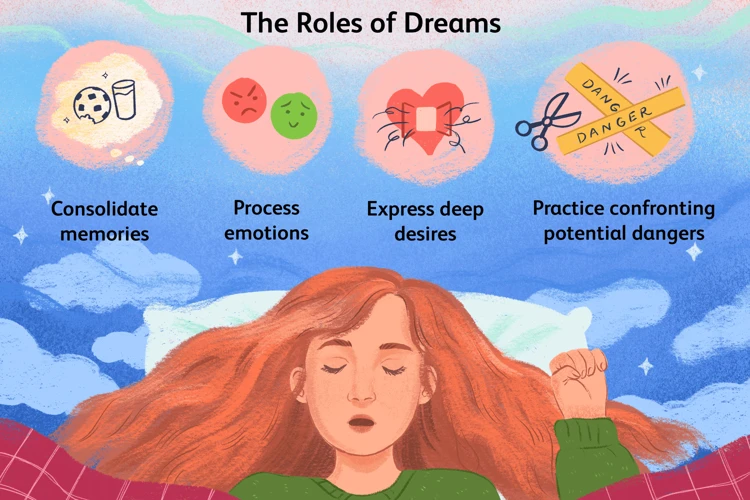
Emotions play a significant role in our dreams, often providing valuable clues about our subconscious thoughts and feelings. Fear and anxiety are common emotions experienced during dreams, reflecting our concerns, worries, and unresolved issues. Dreams can also be filled with feelings of love and desire, representing our deepest longings and aspirations. Additionally, confusion and uncertainty may manifest in dreams, mirroring our internal conflicts or a lack of clarity in our waking lives. The emotional landscape of dreams is diverse and unique to each individual, offering a glimpse into the complexities of our inner worlds. By exploring and interpreting the emotions experienced during dreams, we can gain insights into our emotional well-being and uncover hidden aspects of our psyche.
Fear and Anxiety
Fear and anxiety are common emotions experienced in dreams, and they can offer valuable insights into our subconscious fears and concerns. When we dream of fearful situations, such as being chased or attacked, it may reflect our anxieties and insecurities in waking life. These dreams often serve as a way for our mind to process and confront these fears in a safe environment. Additionally, dreams of anxiety can arise from unresolved issues or pending decisions that weigh heavily on our minds. The intensity of these emotions in dreams can vary, ranging from a mild unease to overwhelming terror. Exploring the symbolism and context of these fear-based dreams can provide a deeper understanding of our inner anxieties and help us uncover potential solutions or coping mechanisms in waking life. So, next time you wake up from a dream filled with fear or anxiety, take a moment to reflect on the underlying emotions and messages they may hold.
Love and Desire
Love and desire are common themes that often appear in dreams, evoking a range of intense emotions. In the realm of dreams, love and desire can take on various forms and scenarios. Dreams about being in a passionate romantic relationship or encountering a new love interest may symbolize our longing for connection and intimacy in waking life. These dreams can awaken feelings of joy, excitement, and a sense of fulfillment. Conversely, dreams about unrequited love or lost love may evoke feelings of sadness, longing, or heartbreak. It is essential to remember that dreams about love and desire are not always literal representations of our waking life experiences. They can also symbolize our desires, needs, or unresolved emotions. Exploring the symbolism and emotions associated with love and desire in dreams can offer valuable insights into our deepest longings and emotional states.
Confusion and Uncertainty
Confusion and uncertainty are common emotions that can manifest in our dreams. Dreams filled with confusion may reflect a state of inner turmoil or indecisiveness in our waking lives. These dreams often present fragmented or nonsensical scenarios, leaving us feeling disoriented and perplexed. Uncertainty in dreams can symbolize a lack of direction or the need to make important decisions. It may also be a reflection of situations where we feel uncertain or overwhelmed. Exploring these dreams can provide valuable insights into our subconscious fears and insecurities, helping us gain clarity and navigate through uncertain times in our waking lives.
Interpreting Colors and Patterns
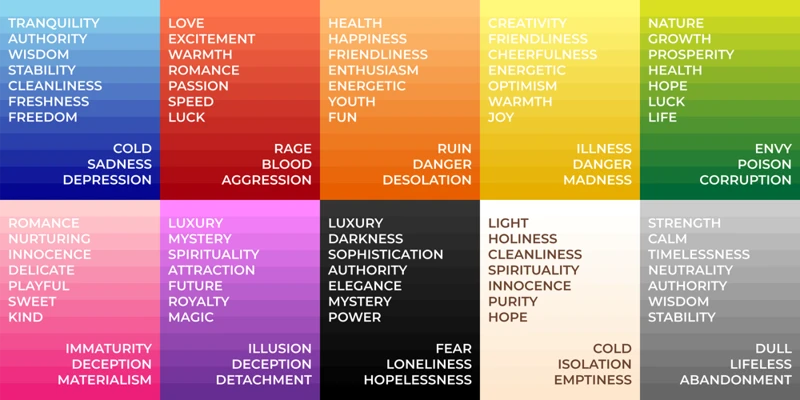
Interpreting colors and patterns in dreams can provide valuable insights into the underlying emotions and meanings behind our subconscious experiences. Colors in dreams often carry symbolic significance, with each color representing different emotions and moods. For example, the color red may symbolize passion and intensity, while blue could represent tranquility and calmness. Patterns in dreams, such as zigzags or spirals, can also hold meaning. Zigzag patterns may indicate confusion or unpredictability, while spiral patterns can be a sign of personal growth and transformation. Understanding the symbolism of colors and patterns in dreams can help us unravel the messages our unconscious mind is trying to communicate. So the next time you have a vivid dream, pay attention to the colors and patterns that emerge, as they may hold the key to uncovering the hidden meanings within.
Dreams about People
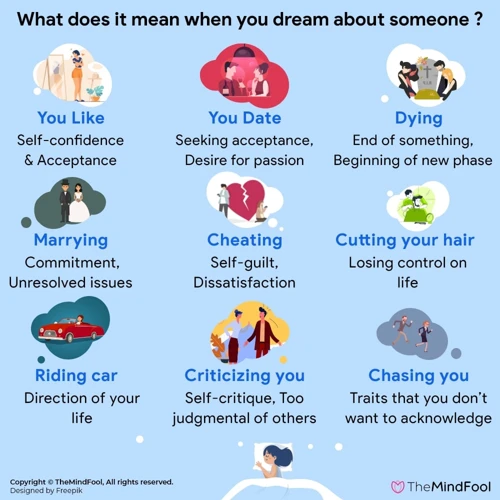
Dreams about people can hold significant meaning and symbolism. The individuals we encounter in our dreams can range from famous figures to family members, friends, or even strangers. Dreams about famous people can reflect our desires for recognition or idolization. They may also represent aspects of ourselves that we admire or wish to embody. Dreams involving family and friends often tap into our deepest emotions and relationships, reflecting our connections, conflicts, or unresolved issues with them. Strangers in dreams can symbolize unknown aspects of ourselves, representing opportunities, fears, or the need for change. It’s important to consider the context, emotions, and interactions within these dreams to gain a deeper understanding of the messages they convey. Whether it’s encountering a celebrity or a loved one, exploring the symbolism of people in our dreams can provide valuable insights into our own psyche and relationships.
Famous People
Dreams about famous people are a common occurrence for many individuals. These dreams can leave us feeling intrigued and wondering about their meaning. When we dream about famous people, it often signifies our desires, aspirations, or admiration for these individuals. The presence of a famous person in our dreams can symbolize our own desire for recognition, success, or the qualities that we associate with that person. It may also represent the influence these individuals have had on our lives or the impact they have made in the world. However, it’s important to note that dreams are highly subjective, and the interpretation of dreams about famous people can vary from person to person. It’s essential to consider the context of the dream, your personal associations with the individual, and any emotions or symbols that arise within the dream itself.
Family and Friends
Dreams involving family and friends hold a special significance in the realm of dream interpretation. These dreams often represent our close relationships and the emotions associated with them. When family members appear in dreams, it may reflect our deep-rooted bonds, unresolved issues, or even symbolize aspects of ourselves that we identify with them. Dreaming about friends can indicate the importance of social connections and the impact they have on our lives. These dreams may also serve as reflections of our current interactions and the qualities we admire or dislike in our friends. Exploring the dynamics and symbolism of family and friends in dreams can provide valuable insights into our personal relationships and emotional well-being.
Strangers
Strangers in dreams can often symbolize unfamiliar aspects of ourselves or represent unknown influences in our lives. Seeing strangers in a dream may evoke feelings of curiosity, unease, or even excitement. The context of the dream and the interactions with the strangers can provide additional clues to their meaning. For example, encountering a friendly stranger could indicate opportunities for new connections or personal growth. Conversely, encountering an aggressive or threatening stranger may reflect unresolved fears or conflicts. It’s important to consider the emotions and reactions experienced during the dream to gain a deeper understanding of the significance of strangers in our dreams.
Environmental Elements
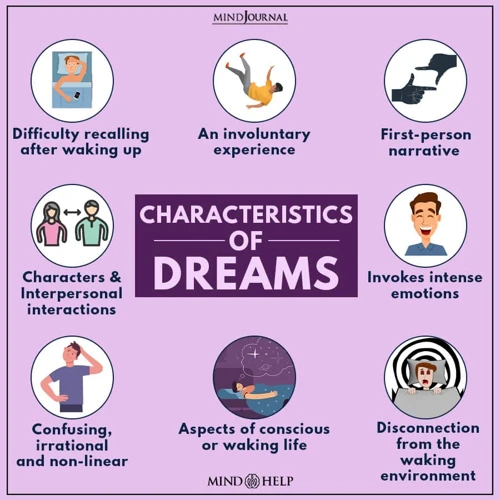
In our dreams, the environment often plays a significant role in shaping the overall narrative and symbolism. Environmental elements are the settings and surroundings that we encounter in our dreams. These elements can vary greatly and may include nature, buildings, places, as well as water and the sea. Nature, such as forests or mountains, can symbolize tranquility, growth, or freedom. Buildings and places may represent aspects of our own psyche or specific areas of our lives. For example, a dream featuring a school could reflect a desire for knowledge or personal growth. Water and the sea often symbolize emotions, with calm waters indicating serenity and turbulent waters representing emotional turmoil. Exploring and understanding the significance of these environmental elements can provide valuable insights into the meaning and messages behind our dreams.
Nature
Dreams involving nature can hold significant symbolism and meaning. When we dream about elements of nature, such as forests, trees, or animals, it often represents our connection to the natural world and our inherent instincts. For example, dreaming of a calm, serene forest may indicate a sense of tranquility and harmony in our waking life, while dreaming of a raging storm could symbolize inner turmoil or unresolved emotions. Animals in dreams can also convey important messages. A soaring eagle might symbolize freedom or ambition, while a roaring lion may represent strength and power. Exploring the symbolism of nature in dreams can provide valuable insights into our emotions, desires, and overall well-being. During the interpretation process, it’s crucial to consider personal experiences and the specific context of the dream to fully understand its meaning.
Buildings and Places
In dreams, buildings and places hold significant symbolism and can provide insights into our subconscious mind. Dreaming about different buildings represents various aspects of our lives, such as our goals, relationships, and emotions. For example, a dilapidated building may symbolize a sense of decay or neglect in our personal life, while a grand mansion could represent aspirations and ambitions. Similarly, specific places in dreams have their own meanings. A crowded cityscape might indicate a feeling of being overwhelmed or lost in the hustle and bustle of life, while a peaceful, serene countryside may signify a need for relaxation and tranquility. Paying attention to the details and emotions associated with buildings and places in dreams can reveal hidden messages and provide valuable insights into our waking lives.
Water and Sea
Water and the sea are common elements that appear in dreams and hold symbolic meanings. Dreams with water often represent emotions and the subconscious mind. Flowing water can signify the flow of emotions or changes in life, while calm water can represent tranquility and inner peace. On the other hand, turbulent or choppy water may indicate emotional turmoil or uncertainty. The sea, with its vastness and depth, often symbolizes the unconscious mind and the mysteries that lie within. A dream of being on a boat or swimming in the sea can represent a sense of exploration, diving into the depths of the subconscious. Similarly, dreams of drowning or being overwhelmed by water may suggest feelings of being overwhelmed or being unable to control emotions. Exploring the symbolism of water and the sea in dreams can provide valuable insights into our emotional state and remind us of the depths of our inner selves.
Context and Surroundings
In the realm of dreams, the context and surroundings play a crucial role in deciphering their meaning. The settings and environment in which our dreams take place can provide valuable insights into the messages they hold. Dreams often incorporate familiar places, such as our homes or workplaces, which may symbolize our feelings of comfort or security. Alternatively, dreams set in unfamiliar or strange locations might reflect a sense of unease or uncertainty in our waking lives. Paying attention to details like the weather, time of day, or season depicted in our dreams can also provide important context for interpretation. For example, a dream set in a stormy night could symbolize inner turmoil or conflict. By analyzing the various elements and surroundings in our dreams, we can unravel the hidden meanings and gain a deeper understanding of our subconscious thoughts and emotions.
Conclusion
In conclusion, the meaning of dreams remains a captivating and complex subject. Throughout history, various theories and interpretations have sought to unravel the mysteries behind our dreams. From Freudian analysis to Jungian perspectives and modern understandings, each approach offers unique insights into the symbolism, emotions, and types of dreams. Understanding the significance of common dream symbols, personal symbolism, and the impact of emotions can provide valuable clues to decoding the messages our dreams convey. Exploring the role of colors, patterns, and environmental elements further enhances our understanding of dream interpretation. Whether you believe dreams hold prophetic value, reveal our unconscious desires, or serve as reflections of our daily experiences, dreams continue to fascinate and intrigue us. While the true meaning of dreams may remain elusive, embracing their wonder and exploration allows us to tap into the depths of our subconscious minds and uncover new layers of self-awareness.
Frequently Asked Questions
What is the purpose of dreams?
The purpose of dreams is still a topic of debate among experts. Some theories propose that dreams serve as a way for the brain to process and consolidate information and emotions from the day. Others suggest that dreams may have deeper psychological or spiritual meanings.
Why do we forget our dreams?
Forgetting dreams is a common phenomenon. It is believed that the brain prioritizes the retention of important information during sleep, leading to the fading of dream memories. Additionally, the transition between sleep stages can also contribute to the forgetting of dreams.
Can dreams predict the future?
While some people claim to have had prophetic dreams, scientific evidence supporting the idea of dreams predicting the future is limited. Dreams are more commonly seen as reflections of our subconscious thoughts and emotions rather than glimpses into the future.
Why do we have nightmares?
Nightmares can be attributed to various factors such as anxiety, stress, trauma, or certain medications. They often occur during the REM (rapid eye movement) stage of sleep and can be associated with the brain processing fears or unresolved emotions.
What does it mean to have a lucid dream?
A lucid dream is a type of dream where the dreamer becomes aware that they are dreaming. In lucid dreams, people may have a sense of control over the dream narrative and can actively participate in shaping their dream experience.
Why do certain symbols appear in dreams?
Symbolism in dreams can vary depending on an individual’s personal experiences, cultural backgrounds, and emotions. Symbols are thought to represent deeper meanings or concepts that the subconscious mind uses to convey messages or emotions.
Do dreams have hidden messages?
Interpreting dreams and deciphering hidden messages can be subjective. Some believe that dreams offer insights into unresolved issues or emotions that may need attention, while others view dreams as a combination of random thoughts and memories without specific meaning.
Can recurring dreams hold significance?
Recurring dreams are often seen as significant because they appear repeatedly over a period of time. These dreams may indicate unresolved conflicts, fears, or patterns in our lives that we need to address or understand better.
What are common emotions experienced in dreams?
Dreams can evoke a wide range of emotions, including fear, anxiety, love, desire, confusion, and uncertainty. These emotional experiences in dreams often reflect our subconscious feelings or concerns.
How can I interpret my own dreams?
Interpreting dreams is a highly personal process. You can start by keeping a dream journal to record your dreams and analyze recurring themes, symbols, or emotions. Reflecting on the context, emotions, and personal associations tied to the dream can help you gain insight into its possible meanings.

